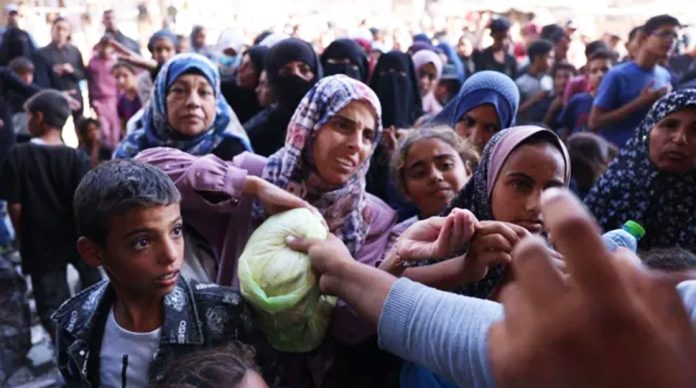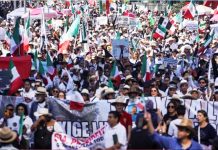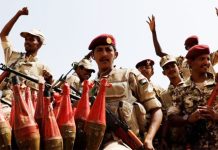Israel must immediately address the “catastrophic humanitarian situation” in Gaza, the US envoy to the UN has warned, as the deadline approaches to improve the flow of aid or face cuts to American military assistance.
The US has given its ally until 12 November to “surge” all assistance, with a minimum of 350 lorries entering Gaza daily. But the UN says only 10% of that number have crossed each day on average since then.
Israel’s ambassador to the UN, Danny Danon, said it was going “above and beyond its humanitarian obligations” and blamed Hamas.
Mr Danon also rejected international criticism of the Israeli parliament’s decision to ban the UN agency for Palestinian refugees (Unrwa) from working in Israel.
Israel’s allies have warned that Unrwa plays a critical role in delivering humanitarian assistance to Gaza, where it is the largest humanitarian organisation on the ground.
In a briefing to the UN Security Council in New York on Tuesday, UN Middle East peace envoy Tor Wennesland said he had witnessed a “horrific humanitarian nightmare” during a recent visit to Gaza.
He said the north of the Palestinian territory had received virtually no humanitarian assistance since the start of October, when the Israeli military began a ground offensive in the Jabalia area that it said was aimed at stopping Hamas fighters from regrouping there.
The operation has killed scores of Palestinians, caused mass displacement and led to the closure of essential services, including water wells and medical facilities.
The US ambassador said the reports of children going days without food in Jabalia had made her think about how she had seen a girl die of starvation almost three decades ago.
Ms Thomas-Greenfield said the Biden administration had made clear to Prime Minister Benjamin Netanyahu that Israel must address the humanitarian crisis in Gaza immediately and that the US “rejects any Israeli efforts to starve Palestinians in Jabalia, or anywhere else”.
“The US has stated clearly that Israel must allow food, medicine and other supplies into all of Gaza – especially the north, and especially as winter sets in – and protect the workers distributing it,” she added.
Credit: bbc.com









